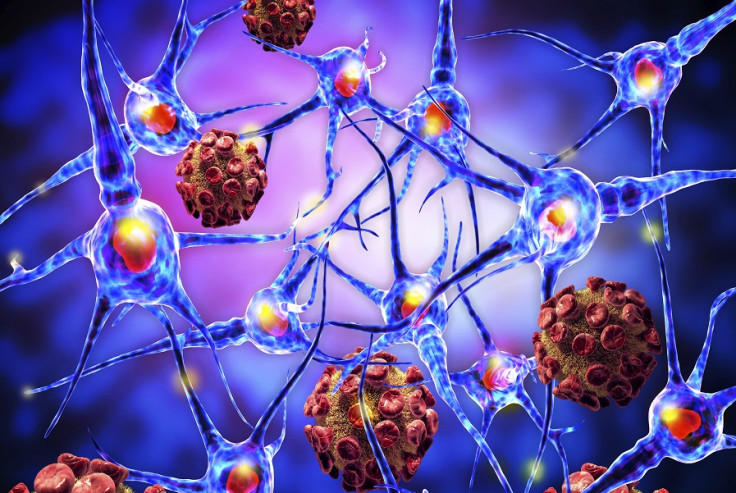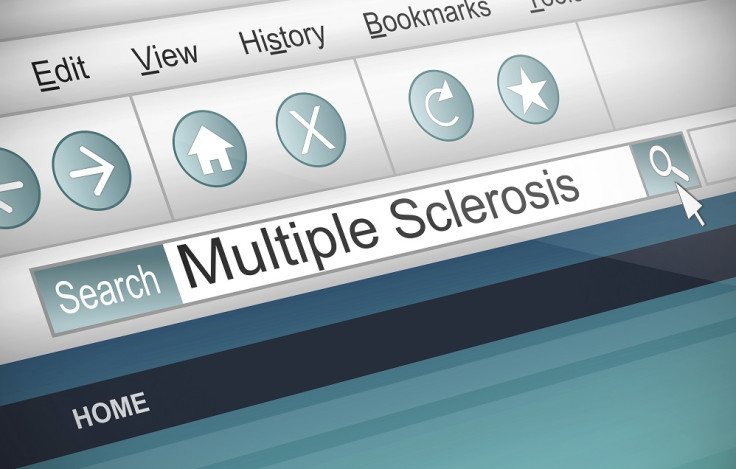World MS Day 2015: 'The specialist wasn't convinced that I really had lost my sight'

Mel, 33, from Plymouth, was diagnosed with multiple sclerosis (MS) in February 2012 after seven years of visits to doctors.
"My legs often felt numb and cold and I had problems walking, but I was always told it was a trapped nerve," she said. "I went to an osteopath to relieve my symptoms, but they weren't able to help me and didn't know what was causing it."
A couple of years later, Mel lost sight in her left eye for a few minutes. "I went into work the next day and told my manager what had happened, who told me to go straight to the eye infirmary. I remember the specialist there wasn't convinced that I really had lost my sight, but reluctantly sent me to have my neck scanned and this came back as clear. It was obvious he didn't believe me or thought I was exaggerating and I found the whole experience very upsetting."
One year later in 2011, Mel's symptoms came back and she saw another doctor who said she needed an MRI scan. They referred her straight away and she was diagnosed with MS, a neurological condition affecting more than 100,000 people in the UK.
"I did believe that I had just trapped a nerve initially but, as time went on, I thought that it had to be something more serious. I also had poor balance, slurred speech, pins and needles in hands and feet, forgetfulness and I was dropping things a lot," she said. "I definitely think there needs to be more awareness about MS and it shouldn't have taken as long as it did for me to get diagnosed."

How common is misdiagnosis?
Research by the MS Society to mark World MS Day, observed on 27 May, shows one in four people with MS are diagnosed with having a trapped nerve, while one in 10 are told they have suffered a stroke.
The survey of over 1,500 people with MS in the UK found that 81% had been misdiagnosed by their GP, with one in 10 misdiagnosed with depression, anxiety or stress. Over a third of people with MS were left waiting a year or more for a diagnosis.
Michelle Mitchell, chief executive at the MS Society, said: "Our findings highlight the struggle people go through for years before they get an MS diagnosis. Being misdiagnosed or experiencing symptoms that can't be explained can put a considerable strain on people's emotions and health.
"People often experience symptoms which interfere with daily life whilst in their prime, when families and careers are developing. While we are aware that MS is a complex condition that isn't easy to diagnose, we don't want thousands of people to be left in limbo suffering needlessly.
"It's important for GPs to recognise the warning signs and refer people promptly to a consultant neurologist who can then make an accurate diagnosis. Most people who experience MS-like symptoms won't have the condition but, if you're concerned for any reason, your GP should still be your first port of call."

What is MS and what are the symptoms?
Yet even after receiving a delayed diagnosis of MS, many people turn to Google for more information about condition – which can lead to misinformation. Although the majority of those surveyed by the MS Society had heard of MS before, one in three didn't fully understand what it was.
Multiple sclerosis is a lifelong condition affecting the central nervous system – the brain and the spinal cord – causing a wide range of symptoms, including problems with muscle movement, balance and vision.
Each nerve fibre in the brain and spinal cord is surrounded by a layer of protein called myelin, which protects the nerve and helps electrical signals from the brain travel to the rest of the body. In people with MS, the myelin becomes damaged, which disrupts the transfer of these nerve signals, causing a wide range of potential symptoms.
Symptoms include loss of vision (usually only in one eye), muscle stiffness that can lead to uncontrollable muscle movements, difficulties with balance and co-ordination and fatigue. The symptoms of MS are very unpredictable and can develop or increase in severity at any time, or they can come and go. Relapse and remission cycles can occur.
World MS Day and the MS Society are campaigning to raise awareness to help better diagnose and understand the neurological condition. Professor Alan Thompson, consultant neurologist at the National Hospital for Neurology and Dean of the UCL Faculty of Brain Sciences, said: "Early symptoms of MS can fluctuate and can be attributed to a number of other things, which is why awareness of the condition is so crucial – both for GPs and the general public.
"We've moved on so much in terms of the treatments that are available to slow the long-term damage that relapsing forms of MS cause, so a prompt and accurate diagnosis of MS can make an enormous difference. It is only once someone is diagnosed that they can begin to understand and manage their condition."
© Copyright IBTimes 2025. All rights reserved.






















